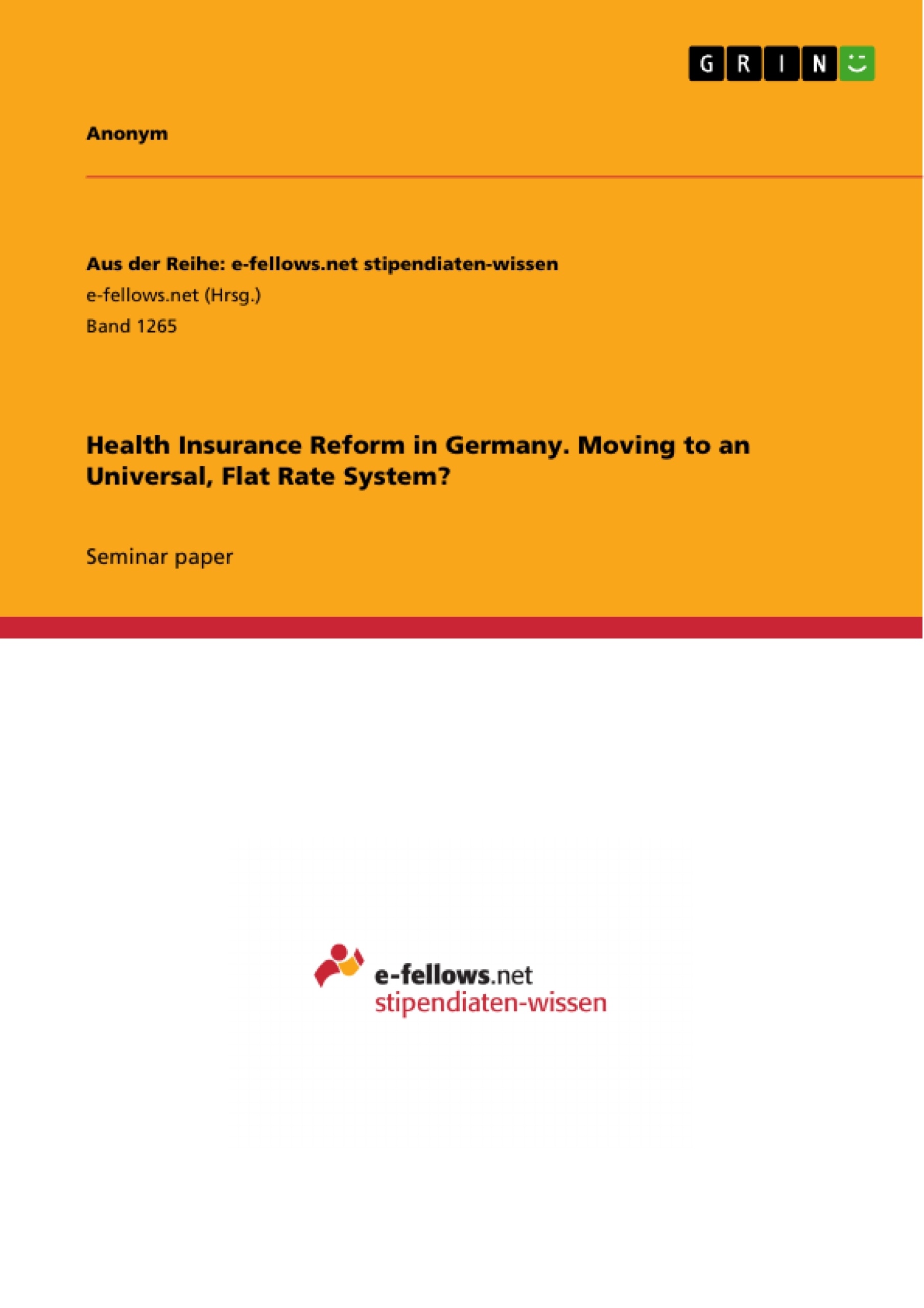In international comparison, Germany ranks 4th among OECD countries in health expenditure as a share of GDP in 2011. It amounted 11.3% of GDP in 2011 which is 2%-points above the OECD average of 9.3%. Only the United States (17.7%), the Netherlands (11.9%) and France (11.6%) are spending more on health. In addition, German health expenditure increased, in real terms, at a rate of circa 2% p.a. on average in 2000-2010, but slowed down to 1.1% in 2011.
However, expenditure continues to grow. With regard to these figures, health care is one of the most important sectors in Germany. With more than 6 million employees and a gross value added of almost € 268 bn in 2013, it represents 11% of the German economy. While expenditure is on the rise, the number of contributors who finance the health care system decreases. As a result, the question of how to finance the growing demand for health services occurs.
In particular, a closer look at the statutory health insurance (SHI) is necessary as it financed 57% of total health expenditure in 2011. Since the report “Achieving financial sustainability for the social security systems” by the Rürup-Commission, two major reform proposals are discussed: the citizens' insurance (“Bürgerversicherung”), a universal system of health care, and a system of flat-rate health premiums (“pauschale Gesundheitsprämien”). These approaches are intensively discussed by politicians and economists who search for an appropriate solution for a health care reform.
Therefore, the following question should be answered by this seminar paper: Should we move to a universal, flat rate system? In order to develop an appropriate recommendation, the following questions appear:
How does the current health insurance system in Germany look like? Which problems does this system face? What contribution do the two reform proposals provide for a solution of these challenges? Which are the main arguments in favour and against these approaches? Are there any economic consequences of their implementation? What could be a final solution?
These questions will be responded in the following seminar paper.
Inhaltsverzeichnis (Table of Contents)
- Introduction
- Status quo of the German health care system
- Set-up
- Challenges
- Universal system
- Definition
- Discussion
- Economic impacts
- Flat-rate system
- Definition
- Discussion
- Economic impacts
- Universal, flat rate system
- Conclusion
Zielsetzung und Themenschwerpunkte (Objectives and Key Themes)
This seminar paper aims to examine the potential of a universal, flat-rate health insurance system in Germany. It analyzes the current German health insurance system, its challenges, and the proposed reform proposals of citizens' insurance and flat-rate health premiums. The paper then explores the economic impacts of these proposed reforms and ultimately seeks to answer the question: Should Germany move towards a universal, flat-rate system?
- The current state of the German health care system
- Challenges faced by the German health insurance system
- The citizens' insurance model and its potential
- The flat-rate health premium system and its feasibility
- Economic implications of potential health care reforms
Zusammenfassung der Kapitel (Chapter Summaries)
- Introduction: This chapter provides an overview of German health expenditure in an international context, highlighting the country's high spending on health care. It also emphasizes the growing demand for health services and the need for sustainable financing solutions, particularly within the statutory health insurance system (SHI).
- Status quo of the German health care system: This chapter delves into the structure and challenges of the German health care system, focusing on the SHI. It explores the key aspects of the current system and identifies the main challenges it faces.
- Universal system: This chapter defines the concept of citizens' insurance, a universal health care system, and discusses its potential benefits and drawbacks. It also analyzes the potential macroeconomic effects of implementing such a system.
- Flat-rate system: This chapter examines the flat-rate health premium system, defining its core principles and discussing its feasibility. It then analyzes the economic implications of implementing a flat-rate system.
- Universal, flat rate system: This chapter presents a potential combination of the citizens' insurance and flat-rate health premium models, exploring the strengths and weaknesses of this hybrid approach.
Schlüsselwörter (Keywords)
The seminar paper focuses on key concepts like health insurance reform, universal health care, flat-rate premiums, citizens' insurance, economic impacts, and the statutory health insurance system (SHI) in Germany. It explores potential solutions to the challenges faced by the current system, examining the feasibility of various reform models and their implications for the German economy.
Frequently Asked Questions
What is the central question of this health insurance reform paper?
The paper investigates whether Germany should move towards a universal, flat-rate health insurance system to address rising costs and demographic changes.
How does Germany's health expenditure compare internationally?
In 2011, Germany ranked 4th among OECD countries, spending 11.3% of its GDP on health, which is significantly above the OECD average.
What is the "Bürgerversicherung" model?
The "Bürgerversicherung" (citizens' insurance) is a proposed universal health care system designed to consolidate financing and improve sustainability.
What are flat-rate health premiums?
This reform model suggests a system where health insurance premiums are decoupled from income and paid as a fixed amount by all participants.
What are the main challenges facing the German Statutory Health Insurance (SHI)?
The SHI faces rising expenditures due to medical progress and an aging population, while the number of contributors is decreasing.
What economic impacts are discussed in the paper?
The paper analyzes the potential macroeconomic consequences of both the universal system and the flat-rate premium model on the German economy.
- Citation du texte
- Anonym (Auteur), 2014, Health Insurance Reform in Germany. Moving to an Universal, Flat Rate System?, Munich, GRIN Verlag, https://www.grin.com/document/300346



